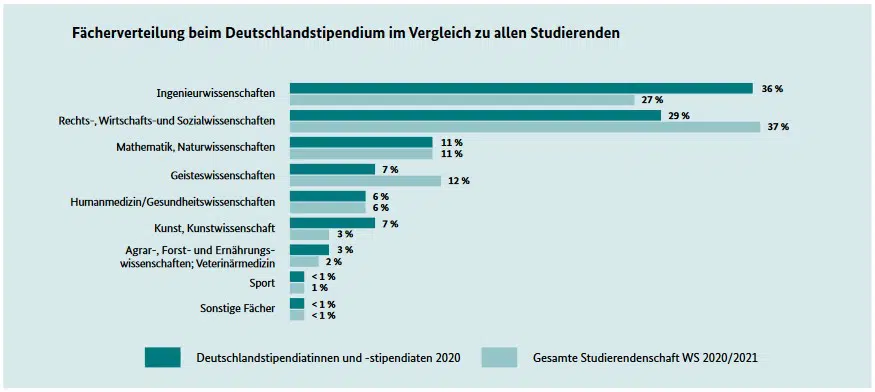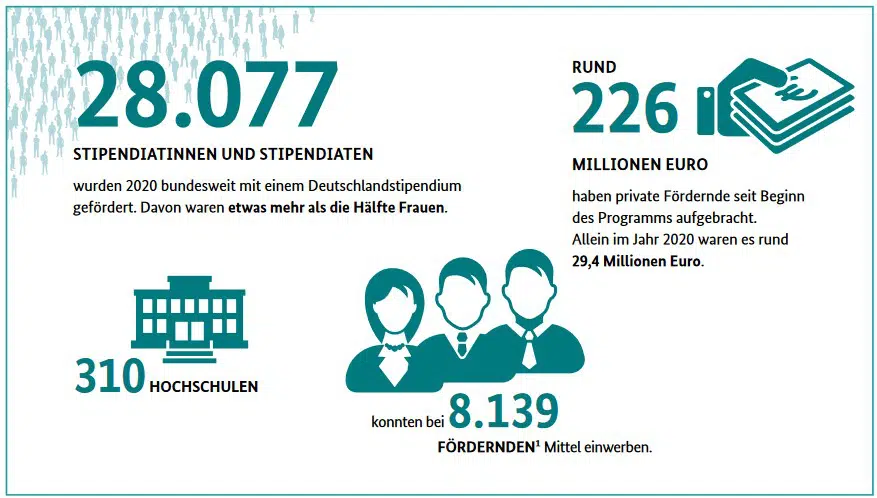Skills get people ahead. But as everyone knows, no master has ever fallen from the sky. Required skills, whether hard or soft, must first be developed. The people, the contexts, the scenarios vary, but one thing is always helpful: ‘talent’ has become a central concept in the labor market.
The more specialized the requirements, the more difficult it is to find suitable employees – the mechanism on the theoretical side of what is generally described as the ‘war for talent’ is obvious. So, in order to provide for more skilled workers, one has to start deeper. More education or, rather, access to better education must be promoted. As a company that is close to the academic environment, TUP sees the promotion of young people as being of great importance – and is also committed to this in civil society. The means of choice: awarding the Deutschlandstipendium scholarship.
University, sponsor, state
The Deutschlandstipendium is a construct that is handled directly by the universities. The students, who are selected as members of the respective educational institutions, are supported on the one hand by the state and on the other hand by voluntary donors. Initiated by the BMBF, the German Federal Ministry of Education and Research, the program involves business enterprises such as TUP, foundations, and in some cases even private individuals, such as alumni.
Although the BMBF provides the impetus for the model, universities and civil society must first come together – assuming that a donor is willing to contribute. If funding is initiated, the ministry and education patron share the monthly funding sum of €300. Students receive this support for at least two semesters. The financial injection is intended to enable scholarship holders to concentrate fully on their studies. The Deutschlandstipendium keeps its students financially independent, offers opportunities and, in the best case scenario, opens up extraordinary paths in life and education.
Beneficial for all
In addition to the philanthropic motive, the awarding of scholarships also has other positive aspects that make the awarding of a Deutschlandstipendium an obvious choice for any business enterprise. At the present time, TUP has awarded one of these scholarships and, as a result, was also able to directly recruit a new employee in the form of scholarship holder Yannick Schellert. Schellert’s example illustrates several of the synergy effects indicated above:
Through scholarships, companies can get to know potential skilled workers at an early stage and draw attention to themselves – even beyond the individual. Not every company maintains constant contacts in the world of academic research and teaching. TUP already has a presence here, but networking in other fields can hardly be a hindrance to desirable perceptions and joint projects, starting with final theses. The fact that this proximity to companies is interesting for the students was also directly demonstrated by the example presented here: Yannick Schellert, who was supported by the Deutschlandstipendium, also subsequently completed his master’s thesis at TUP. On the topic of ‘Chatbots in intralogistics’, he combined practical experience from the world of warehouses and distribution centers with academic theory. Just as Yannick is a mechanical engineer by degree, the Deutschlandstipendium is able to appeal to students from different disciplines. In this way, additional interdisciplinary know-how can be gained for companies, from which new impulses and increased innovation can sometimes emerge.
The Deutschlandstipendium recently celebrated its 10th anniversary. Although TUP has not yet been involved for so long with a single scholarship awarded, it has been able to make good direct experiences based on the developments of this commitment – and of the scholarship holder. Due to the many positive aspects of the support of selected students, TUP will continue to signal its willingness to take over scholarships at KIT.

More info on the official website https://www.deutschlandstipendium.de

